Are you venturing into the world of freelancing and need a solid service agreement? A well-structured letter can save you from misunderstandings and ensure both you and your client are on the same page. With clear terms laid out, you can focus on your creative work without worrying about potential pitfalls. So, let's dive into the essentials of a freelancing service agreement that protects your interestsâread on to learn more!

Scope of Work
Freelancing service agreements outline the framework for professional relationships, detailing the scope of work involved. This typically includes specific project descriptions, such as graphic design for a marketing campaign (including deliverables like logos, brochures, and social media graphics), web development tasks (coding and designing websites, ensuring mobile responsiveness, and implementing SEO strategies), or content creation (writing articles, blog posts, and copy for advertisements). Key project milestones and deadlines must be specified to ensure timely delivery of services. Payment terms, including rates (hourly or fixed fees), payment schedules, and any additional expenses, are part of the agreement. Defining communication protocols, such as weekly updates through email or scheduled video calls, enhances collaboration. Lastly, the agreement should address any copyright and intellectual property rights regarding the completed work.
Payment Terms
The payment terms in a freelancing service agreement define the financial obligations and expectations between the freelancer and the client. Typically, this section outlines the total project cost, payment schedule, and acceptable payment methods. For instance, a freelancer may require a 50% upfront deposit (e.g., $500 for a $1,000 project) before commencing work, with the remaining 50% due upon project completion. Payment methods may include bank transfers, PayPal, or credit cards, ensuring clarity on transaction fees (usually around 2.9% for credit card payments) and any late fees applicable (such as a 5% penalty for payments exceeding 30 days). Timely payments are essential for maintaining a positive working relationship and ensuring project timelines are met.
Confidentiality Clause
The confidentiality clause in a freelancing service agreement establishes the obligation of both parties to protect sensitive information. Such information may include proprietary data, client lists, financial details, and project specifications. The clause typically specifies that any shared confidential information must not be disclosed to third parties without prior written consent. Violation of this clause can lead to legal repercussions. Duration of confidentiality obligations often extends beyond the termination of the contract, ensuring continued protection of sensitive information. Local laws and regulations may also influence the enforcement of this clause, highlighting the importance of clear definitions and terms.
Termination Conditions
Termination conditions in a freelancing service agreement specify the circumstances under which either party can end the contractual relationship. An explicit clause delineates terms, such as providing a written notice, typically requiring a notice period of 15 to 30 days, to ensure a smooth transition. Termination can occur due to breach of contract, failure to meet agreed-upon deadlines, or non-payment for services rendered. The clause may also encompass provisions for termination for convenience, allowing either party to terminate without cause. Additionally, conditions regarding the return of intellectual property, such as designs or documents created during the contract, should be clearly articulated to eliminate ambiguity. This framework provides clarity and helps protect the interests of both freelancers and clients in collaborative projects.
Intellectual Property Rights
Intellectual Property Rights (IPR) are essential in determining ownership and usage of created works in the freelancing industry, particularly in creative fields like graphic design or writing. Clear definitions of IP in service agreements are crucial for both freelancers and clients. For instance, copyright pertains to original works, while trademarks (such as logos or brand names) protect brand identity. As of 2023, in many jurisdictions, the default rule is that freelancers retain rights to their work unless explicitly transferred. This agreement should specify whether the client obtains exclusive rights, licensing arrangements, or if the creator retains the ability to showcase work in portfolios. Clarity regarding payment structures for transferred rights, such as lump sum fees or royalties based on future sales, is also vital for protecting both parties' interests.

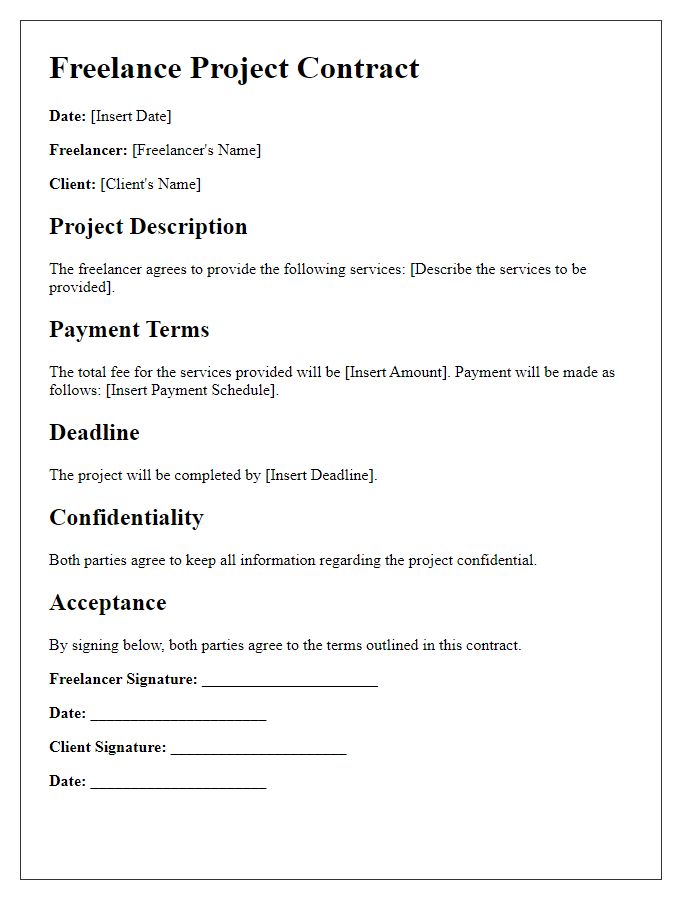
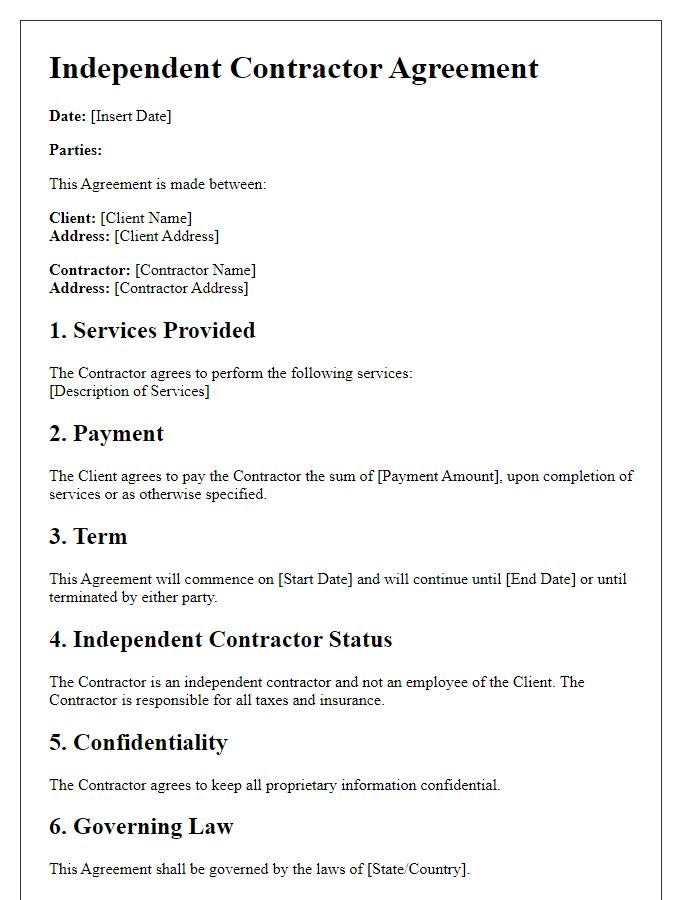
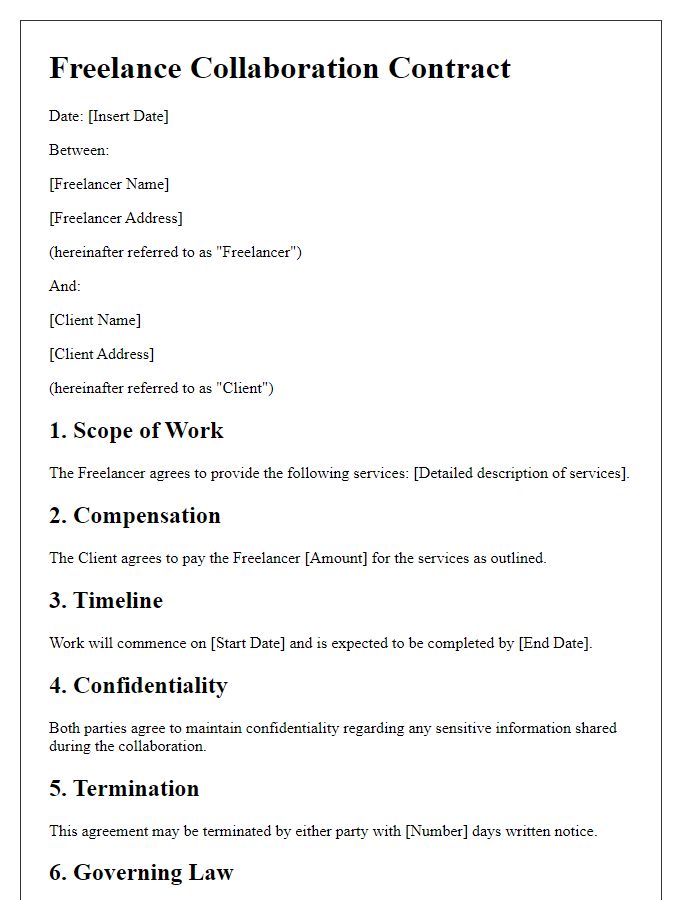
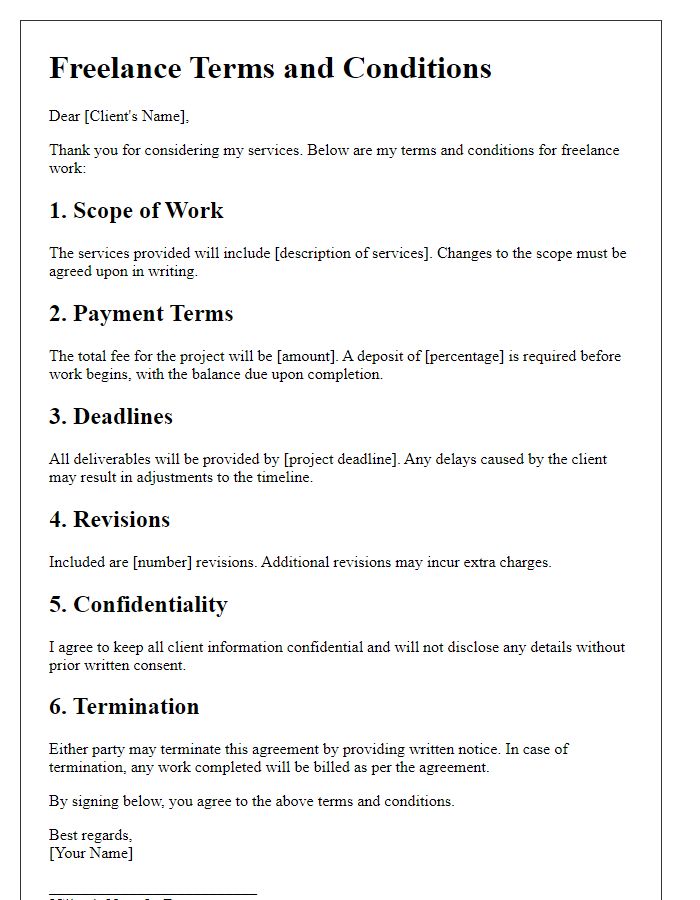
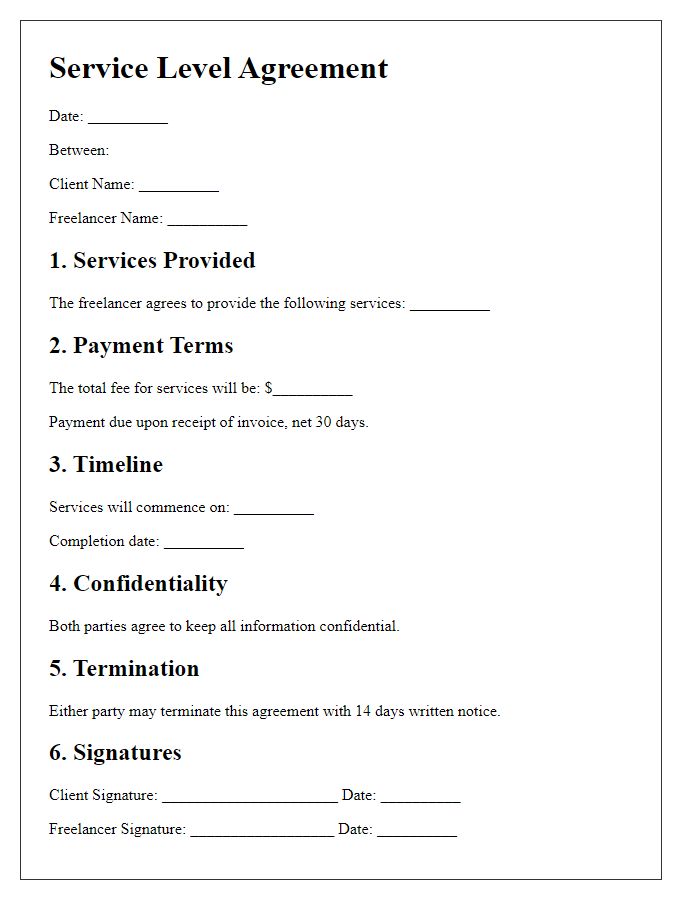
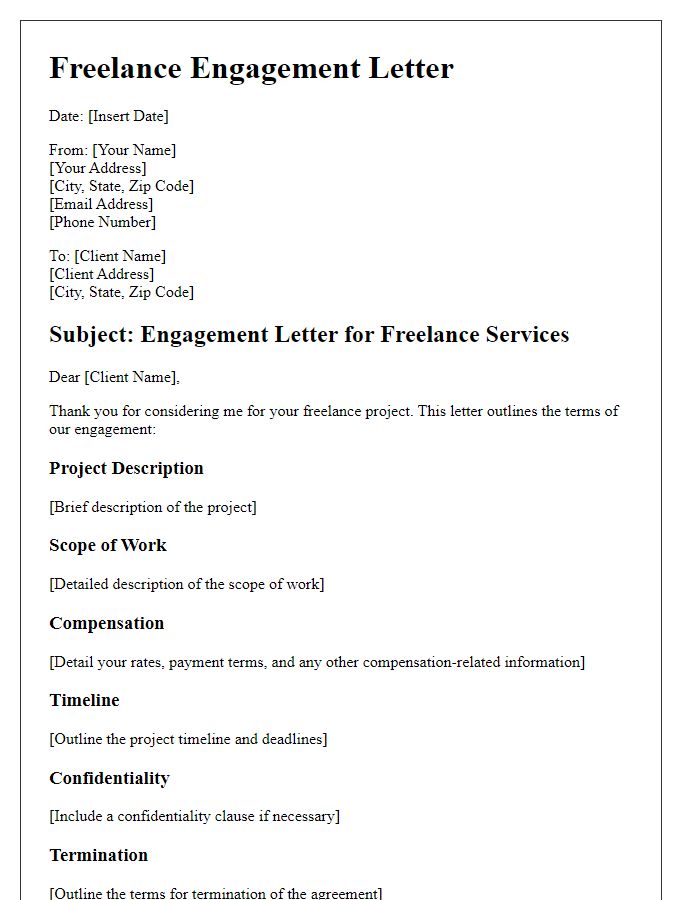
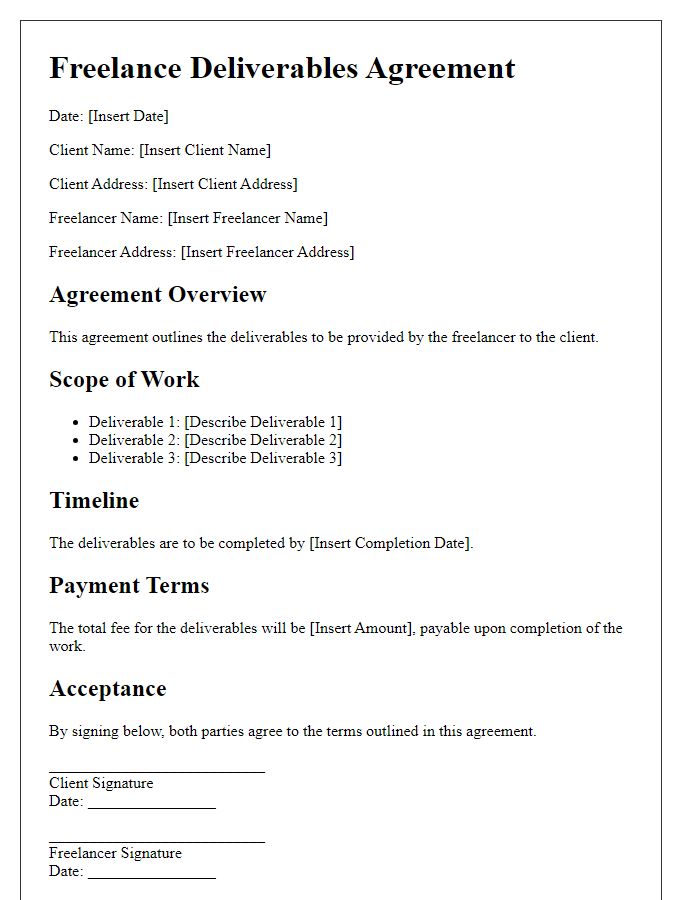
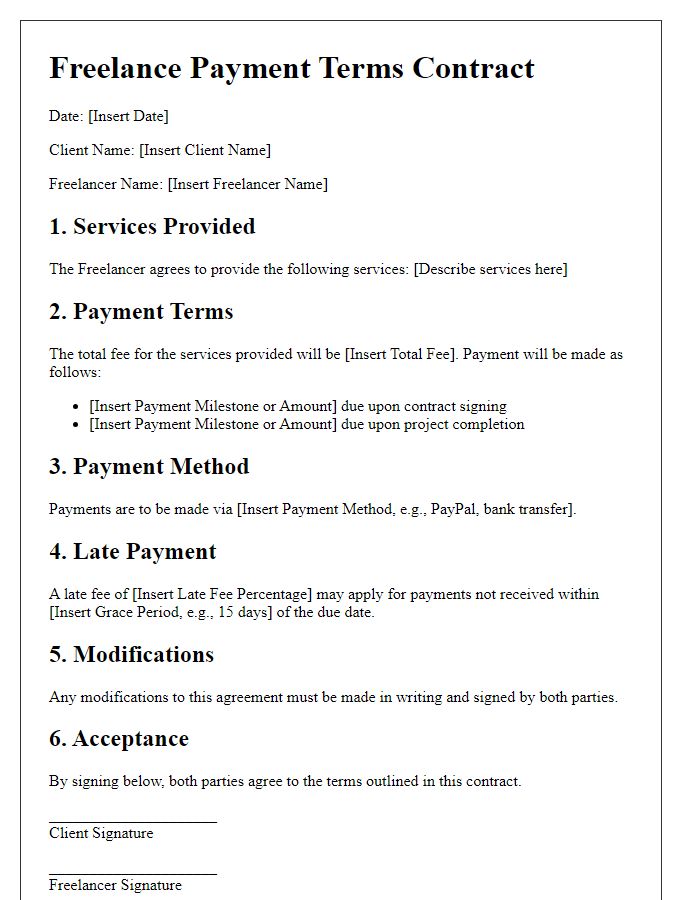
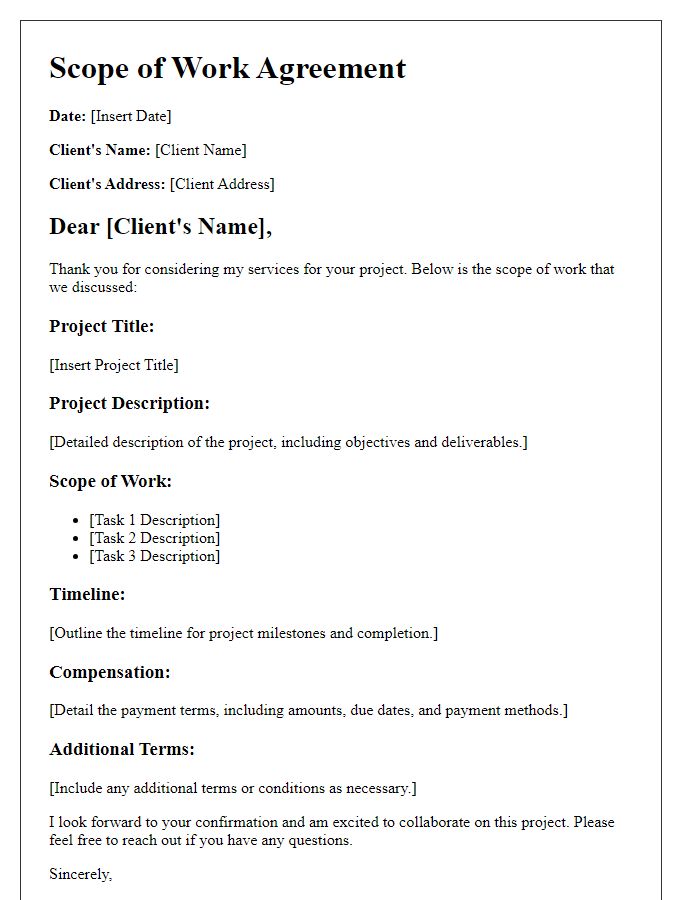
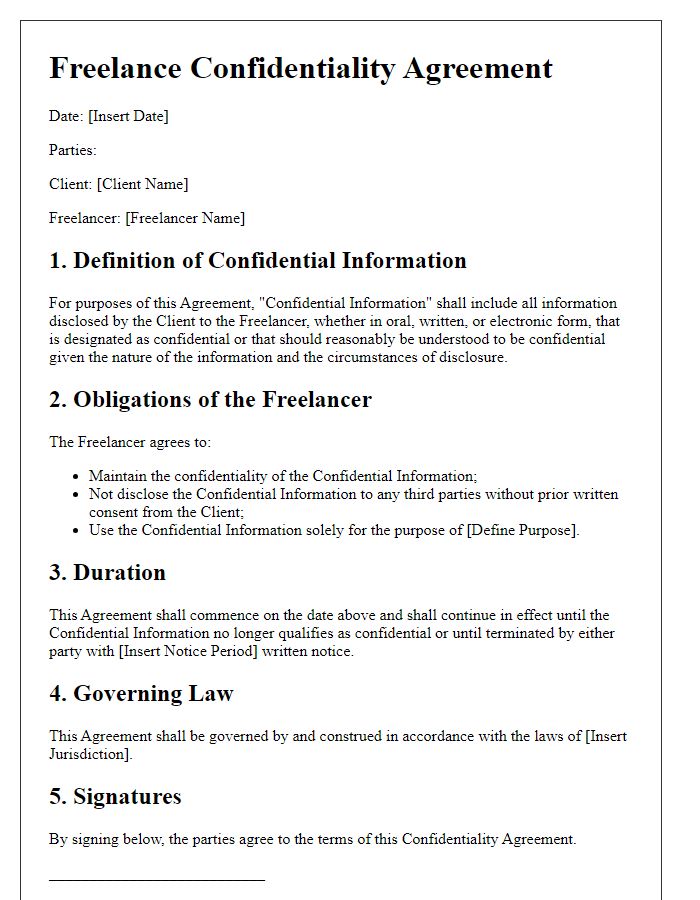


Comments